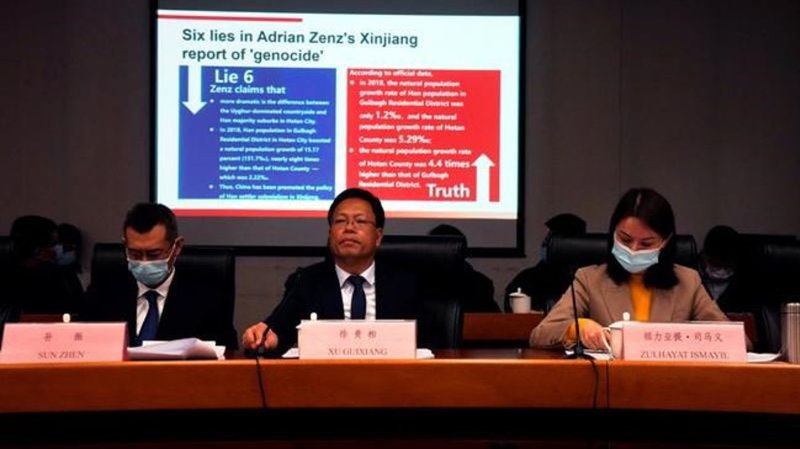
China denies coercive birth control measures in Xinjiang
BEIJING — A Chinese official on Monday denied Beijing has imposed coercive birth control measures among Muslim minority women, following an outcry over a tweet by the Chinese Embassy in Washington claiming that government polices had freed women of the Uighur ethnic group from being “baby-making machines.”
Xu Guixiang, a deputy spokesperson for the Xinjiang regional government, told reporters Monday that birth control decisions were made of the person’s own free will and that “no organization or individual can interfere.”
“The growth rate of the Uighur population is not only higher than that of the whole Xinjiang population, but also higher than that of the minority population, and more significantly higher than that of the (Chinese majority) Han population,” Xu said. “As for the so-called forcing ethnic minority women in Xinjiang to wear IUDs, or undergo tubal ligations or abortions, it is even more malign.”
An Associated Press investigation in June found that the Chinese government was forcing draconian birth control measures on Uighurs, Kazakhs, and other ethnic minorities in Xinjiang, including IUD fittings, contraceptives, and even abortions and sterilizations.
